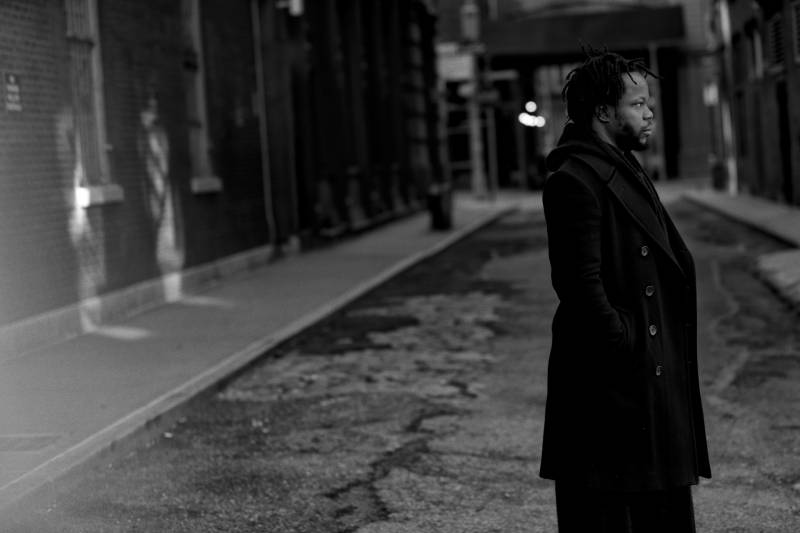In June, as the date approached for Ambrose Akinmusire’s fifth release on famed jazz label Blue Note Records, people across the country flooded the streets in protest. The Black Lives Matter movement and the long-standing fight for racial justice picked up with reinvigorated momentum, and the composer, trumpet player and bandleader’s stunning new album, on the tender spot of every calloused moment, felt like nothing short of a necessary companion piece to this moment in the quest for Black liberation.
For the Oakland-born and -bred Akinmusire, on the tender spot of every calloused moment is a continuation of the Black art he’s been creating long before this recent surge in civil unrest.
“All of my albums have been released at the time of Black trauma in the U.S.,” Akinmusire says. “But I probably wouldn’t have been doing this had it not been for the Oscar Grant shooting happening at the same time I was releasing my first album. That hit home.”
Akinmusire and Grant were from the same area, were close in age and knew some of the same people. “His uncle and auntie would come to my shows and I talked to them a couple times,” he says. “So I was thrust into this very personal feeling because I know what Fruitvale BART station looks like, I know the sounds and I know what it’s like to be on that platform waiting for trains.”
Akinmusire’s ability to make music that speaks to his changing experience in the shapeshifting tumult of America has made the 38 year old one of the most respected creators in jazz. In 2007, the Berkeley High School graduate won the prestigious Thelonious Monk Competition, paving the way for his illustrious career. Now part of Blue Note’s core roster, Akinmusire has also played alongside masters like saxophonist Steve Coleman, pianist Vijay Ayer and bassist Esperanza Spalding. He graced the cover of jazz publication Downbeat Magazine in 2014 and in 2017, and played trumpet on Kendrick Lamar’s groundbreaking To Pimp A Butterfly, appearing on the album’s stirring closing track, “Mortal Man.”


